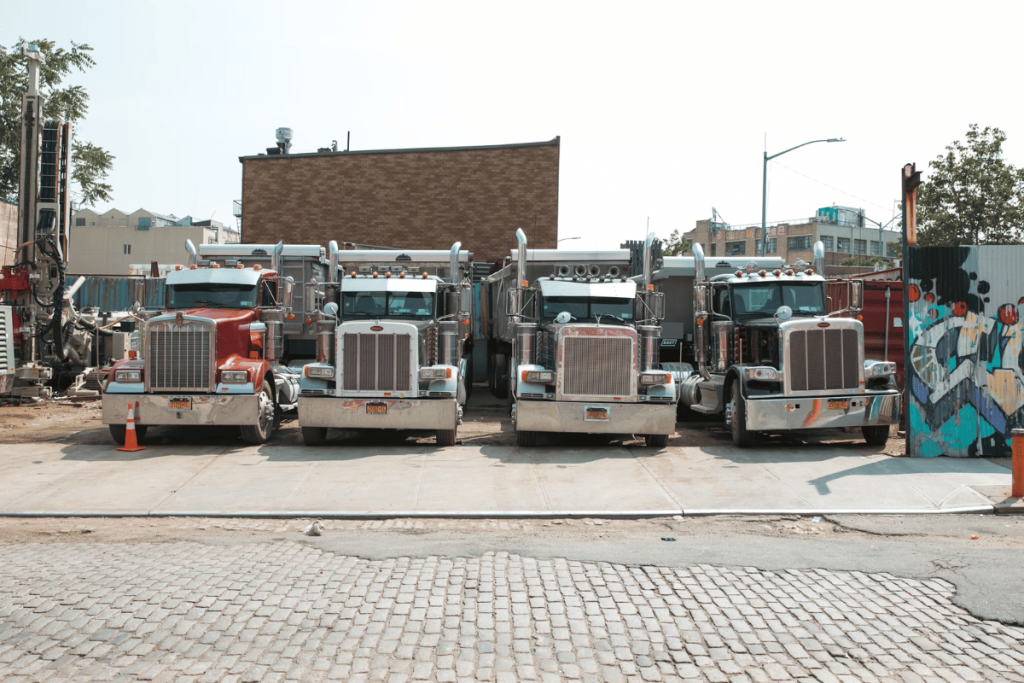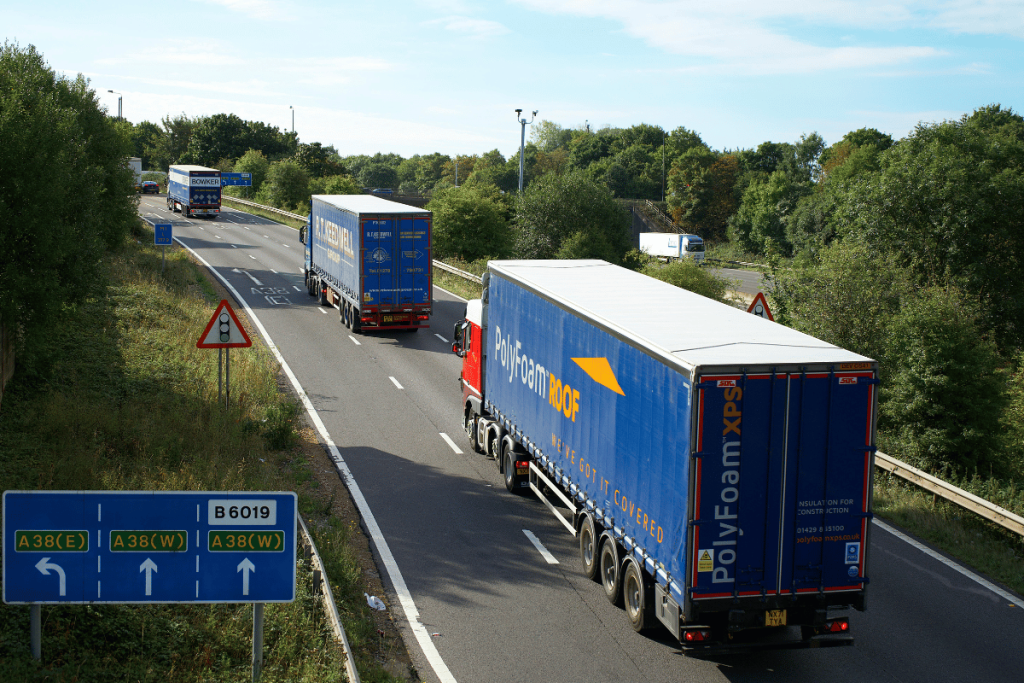You probably want to retire or move on to other things. Perhaps you’re burned out. Whatever your reasons, you’re eagerly researching how to sell a trucking company.
Well, you are in luck! Our guide today explores how you can easily sell your trucking business for the highest possible sale price.
Here are the steps to follow to complete a trucking business sale. We’ll dig deeper into each step in the following sections.
Since all these steps can be intimidating on your own, you can consult with us today to help you streamline the process.
At Exitwise, we help you hire a dream team of industry-specific M&A experts, including tax accountants, M&A attorneys, wealth managers, and investment bankers, to help you sell your business under the most favorable terms.

Let's discuss these 10 steps in detail:
You must first be in the right mindset for the sale to happen easily.
Consider these three things:
There are three common methods you can use to value your business:
If you analyze the past market transactions of similar trucking companies, you'll get a basis for your own valuation.
The limitation here is that you may not have access to ample market transaction multiples because most privately owned trucking companies do not disclose them.
However, if you’re a public company, you can easily access these multiples because public companies usually involve publicized M&A activity where the multiples are disclosed.
The cost-based approach considers all the costs of creating the company and buying past and current tangible assets, as well as the value of intangible assets.
The method determines how much it would cost to grow an exact company like yours from the ground up.
The asset approach shows the net value of a business’s assets minus the market value of all its liabilities.
In this approach, use the market value of the equipment you have, and remember that your company's value will typically be based on the income generated by your assets.
Also, remember to factor in your goodwill or intangible value, which helps increase your company's value above its asset value.
According to a report by First Page Sage, the current average EBITDA multiples range for trucking companies is 6x - 8x.
The EBITDA approach applies an industry multiple to a business’ EBITDA (Earnings Before Interest, Taxes, Depreciation, and Amortization).
To calculate your EBITDA multiple, divide your company's enterprise value by its EBITDA. The enterprise value is your company's market capitalization plus its total debt minus its cash and cash equivalents.
EBITDA = Net income + Interest + Taxes + Depreciation + Amortization
Enterprise Value = Market Capitalization + Total Debt - (Cash + Cash Equivalents)
EBITDA Multiple = Enterprise Value/EBITDA
Your trucking company's value = EBITDA x the multiple.
At Exitwise, we understand that doing these valuations yourself can be overwhelming. Our online valuation tool can help you understand your company’s value in real time.

The right M&A team will help you market your business, vet potential buyers, finalize the sale agreement, and ensure a smooth transition.
We can help you interview, hire, and manage an all-round M&A team comprising wealth advisors, investment bankers, accountants, and attorneys. Here's how Exitwise works to ensure a successful sale.
You'll need to get your financial house in order and prepare various financial documents showing how much your business makes and how much a buyer can expect to make.
You'll want to improve your business to make it more appealing to the buyer. One quick way to increase the value is to diversify your income sources.
Your M&A team helps you market your business to the right pool of potential buyers.
If you would like to help, market your business online on social media and trucking forums.
Networking events are also a great way to market the business in person.
After finding a favorable buyer, negotiate an attractive sale price and payment process.
You can reasonably compromise on some aspects, but you should also let the buyer know if there are others you can't compromise.

Your potential buyer signs a non-disclosure agreement once you’ve agreed on favorable terms and they carry out their due diligence.
Due diligence involves reviewing the records you’ve provided to ensure your business is operating as indicated. Your part is to answer questions and address concerns the buyer may have.
After the buyer is satisfied, close the sale and have them pay using the agreed procedure.
Be sure to provide the buyer with all the legal paperwork and transfer your assets to them.
The sell side often overlooks the transition period. It's prudent to do your best to ensure the new owner settles smoothly into the business.
You should prepare the following financial documents and information when selling your company:

Potential buyers will want to ascertain that your trucking business is legally healthy as advertised.
Prepare the following legal declarations:

You can use different methods to value your trucking company and find out which one most favors you. If you use the EBITDA multiple approach, your valuation will hypothetically take the form below.
Company value = EBITDA x Multiple
EBITDA multiple = Company Value/EBITDA
Company EBITDA = $5.5M
Market capitalization = $50M
Total debt = $1.5M
Cash and cash equivalents = $0.4M
Your company value = $50M + $1.5M - $0.4M = $51.1M (Market cap + Total debt - cash)
EBITDA multiple = $51.1M/$5.5M = 9.29
Company value = $5.5M x 9.29 = $51,095,000
The amount you sell your trucking company for depends on various factors, as highlighted in the next section.
Going by the example above, you could sell your company for $51,095,000 if your EBITDA is $5.5M and the EBITDA multiple is 9.29.
Remember that this is a hypothetical case, and the actual EBITDA multiples for privately held trucking businesses currently range between 6x and 8x.
Assuming a multiple of 6, the business above could sell for $33M ($5.5M EBITDA times 6).

The sale price of your trucking company depends on factors such as:

Here are 10 ways to increase the value of your trucking business:
1. Invest in well-maintained equipment, such as vehicles, repair tools, and computers.
2. Expand your customer base to increase revenue.
3. Enhance customer relationships and vendor partnerships.
4. Embrace new technology, such as electric vehicles and the Internet of Things.
5. Use systems that maintain optimal standard operating procedures without the owner's daily involvement.
6. Pay off as much debt as you can.
7. Develop a strong management team.
8. Reduce your operational costs, for example, by cutting off excess or underemployed staff.
9. Set systems for a smooth transition, such as specific employees working directly with the new owner until they settle in.
10. Amicably resolve any outstanding legal battles.

When selling your transportation company, be sure to execute the following steps:
If the sale process turns out a bit complicated, contact us now for help with hiring and managing the dream M&A team that will maximize your sale price.

Check out these answers to common questions when selling a trucking company.
While you can market your trucking company yourself, you can find an even better buyer if you let your M&A team market it to their extensive database of potential buyers.
It's best to leave the sale price negotiation to your M&A team but with a detailed list of the areas you’re willing to negotiate and the ones you can't go back on.
It's prudent to help the new owner settle into the company easily.
You can help with this in the following ways:
By now, you’ve learned how to sell a trucking company, right from valuing it to marketing it to the right potential buyers and closing the sale.
Since it's a complex process, it's advisable to hire experts to help you.
You can connect with us today to help you find, hire, and manage an awesome M&A team to sell your transportation business under the best possible terms.
Let Exitwise introduce, hire and manage the best, industry specialized, investment bankers, M&A attorneys, tax accountants and other M&A advisors to help you maximize the sale of your business.

